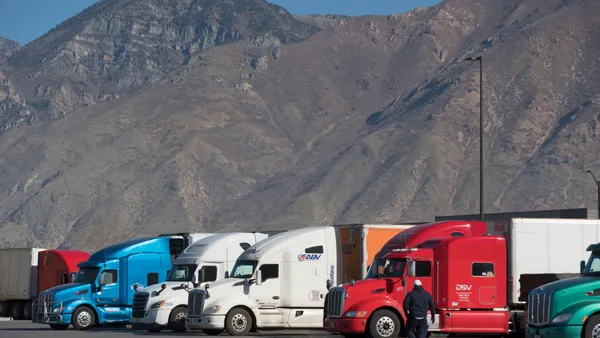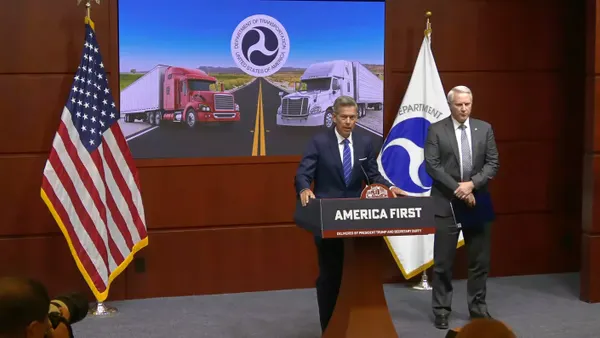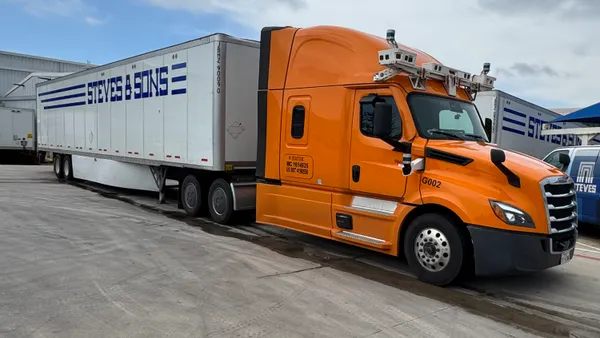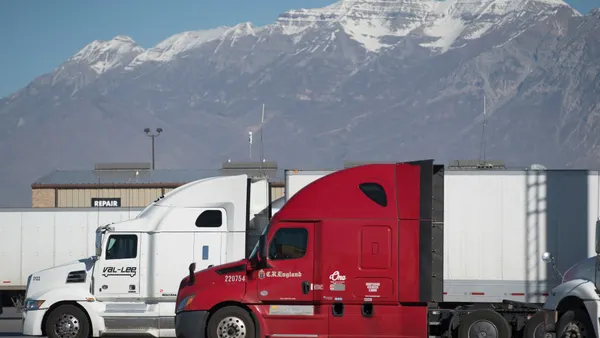A sweeping tax bill signed into law last week brought praise from multiple trucking groups but also a call for further reform from part of the trucking industry.
The tax package from Congress enhances multiple areas for trucking businesses and tax-reduction benefits, trucking groups say, such as a 100% bonus depreciation provision and $15 million estate tax exemption.
"There's a lot to like for us," said David Bauer, the American Trucking Associations’ VP of state and tax policy, in a June interview with Trucking Dive shortly after the Senate version of the bill came forward.
Among the provisions, the final law:
- Restores a 100% bonus depreciation measure, which was being phased out under the Tax Cuts and Jobs Act of 2017 and slated to reach 0% in 2027. That means certain property, including trucks and trailers, can get upfront tax writeoffs, rather than having the tax relief spread over the life of the equipment.
- Increases an estate and gift tax exemption to $15 million starting next year. Accounting firms noted that tax provision’s 2025 level is $13.99 million. The amount is also revised annually based on inflation.
- Makes permanent a 20% qualified business income deduction for pass-through entities.
“Motor carriers, the overwhelming majority of which are small businesses that operate ten trucks or fewer, will now have the ability to plan for the future, continue to provide good-paying jobs, and upgrade equipment,” ATA President and CEO Chris Spear said in a news release. He added that truckers know better than anyone else how to reinvest the money.
The bill’s passing, Spear said, further averts the largest-ever tax increase in the country’s history, which neither the economy nor the supply chain would have survived.
“The new law extends critical tax provisions like bonus depreciation and qualified business income deductions—key tools that allow Wisconsin-based carriers to reinvest in their fleets, grow their businesses, and compete nationally,” the Wisconsin Motor Carriers Association said in a LinkedIn post.
At the same time, the law reverses several climate programs from the 2022 Inflation Reduction Act providing money to governments, Native American tribes and nonprofits. Multiple environmental nonprofits voiced opposition to the legislation, saying the law will increase pollution.
House and Senate versions of the “big, beautiful bill” sought to rescind unobligated money for Clean Air Act add-ons that include a $27 billion program that targeted zero-emission vehicles and greenhouse gas reduction efforts as well as a $1 billion initiative for zero-emission Class 6 and 7 vehicles.
That remaining funding is money that OEMs may never see. Alternative energy trucking startup Hyzon Motors already noted the policy swing and potential funding impact last December with its liquidation and dissolution plan. Nikola, which is undergoing Chapter 11 bankruptcy to wind down operations, noted “market and macroeconomic” forces in its demise.
Another provision of the bill, eliminating taxes on overtime pay, will not benefit truckers, the Owner-Operator Independent Drivers Association noted.
Truckers are excluded from overtime protections under the outdated Fair Labor Standards Act of 1938, an oversight that should be fixed by passing the Guaranteeing Overtime for Truckers Act to extend overtime pay to the industry, the group said.












